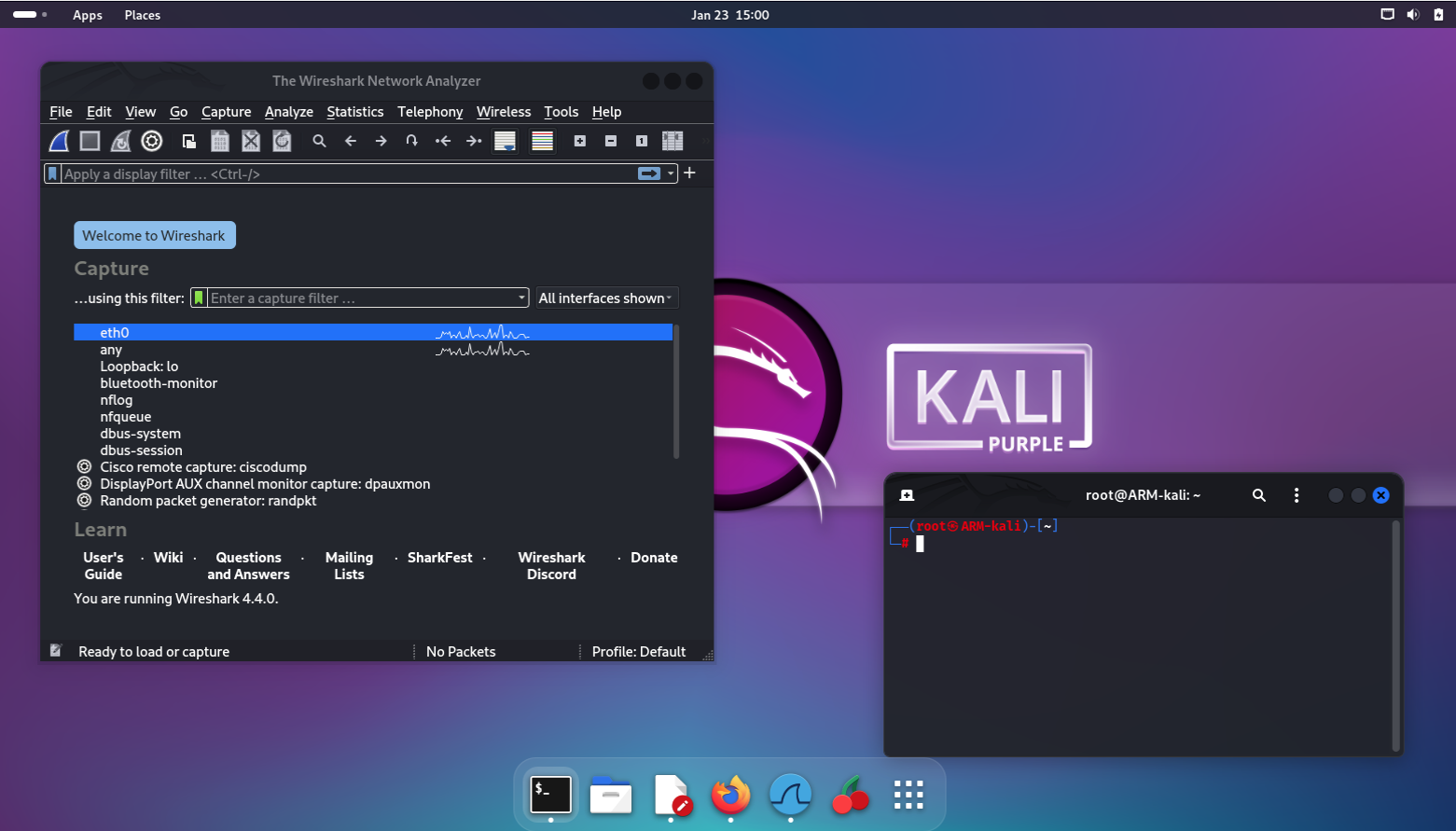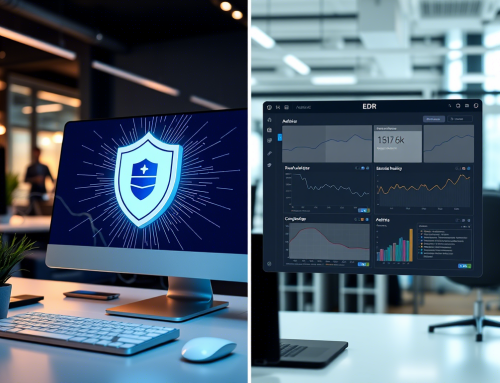Cybersecurity is a rapidly evolving field that requires a specialized set of tools and environments to perform tasks like penetration testing, threat analysis, incident response, and secure communication. Luckily, there is a variety of Linux distributions and virtual machines specifically crafted to meet these needs. Whether you’re an ethical hacker, forensic analyst, or threat intelligence professional, there’s a solution to enhance your workflow. Below, we explore key operating systems and virtual machines, listing their unique features and official websites.
1. Kali Linux
Website: https://www.kali.org/
Known as the industry-standard platform for penetration testers, Kali Linux comes pre-loaded with hundreds of tools for ethical hacking, vulnerability assessment, and penetration testing. Its derivative, Kali Purple, extends capabilities into the defensive side of security by including tools for both attack and defense, making it an all-in-one solution for cybersecurity experts.
Key Features:
- Pre-installed hacking tools like Metasploit, Nmap, and Wireshark.
- Community-driven updates for cutting-edge features.
- Lightweight and customizable for advanced configurations.
2. Tsurugi Linux
Website: https://tsurugi-linux.org/
Tsurugi Linux is designed for digital forensics and incident response (DFIR) workflows. It includes specialized tools for analyzing malware, memory forensics, and disk imaging. Powerful and investigator-friendly, this distribution is critical for law enforcement and corporate investigations.
Key Features:
- Tailored for malware and memory analysis.
- Comprehensive forensic utilities for investigators.
- Great for incident response planning and execution.
3. Predator OS
Website: https://predator-os.com/
Privacy-conscious cybersecurity professionals often turn to Predator OS, a distribution that prioritizes anonymity and ethical hacking. It combines security-focused features with tools necessary for penetration testing and vulnerability assessments.
Key Features:
- Enhanced privacy for anonymous operations.
- A user-friendly alternative for security professionals.
4. BlackArch Linux
Website: https://blackarch.org/
BlackArch is based on Arch Linux and offers a repository of over 2,000 tools for ethical hacking, making it ideal for advanced researchers and penetration testers. It’s lightweight, scalable, and perfect for professionals who want maximum customization.
Key Features:
- Huge repository of security-testing tools.
- Designed for experienced users working on complex cybersecurity challenges.
5. Whonix
Website: https://www.whonix.org/
Whonix ensures anonymity by routing all communications through Tor. Built on Debian, it separates workstations and gateways for added security, making it an exceptional choice for privacy-focused professionals.
Key Features:
- Robust anonymity with Tor routing.
- Secure separation between workstations and gateways.
6. Tails (The Amnesic Incognito Live System)
Website: https://tails.boum.org/
A live operating system crafted for absolute privacy, Tails leaves no trace behind after use. It is commonly used for secure browsing and communications, especially for those who value discreet cyber activities.
Key Features:
- No persistent data storage for maximum security.
- Portable and easy to run as a live OS.
7. RedHunt OS
Website: https://redhunt.os.com/
RedHunt OS combines tools for both defense and offense, making it ideal for adversary simulation and threat hunting. It takes a balanced approach to cybersecurity, catering to professionals who need capabilities for attack as well as protection.
Key Features:
- Tools for adversary simulation and threat defense.
- Comprehensive hybrid solution for varied security workflows.
8. Threat Pursuit VM
Website: https://github.com/fireeye/ThreatPursuit-VM
Built specifically for threat intelligence professionals, this Windows-based virtual machine offers a range of tools for research, malware analysis, and threat investigation.
Key Features:
- Tailored for malware and threat intelligence research.
- Ideal for Windows-based work environments.
9. SIFT Workstation
Website: https://digital-forensics.sans.org/community/downloads
The SANS Investigative Forensics Toolkit (SIFT) is a virtual machine tailored for forensic analysts. It provides pre-configured tools for analyzing file systems and memory data, making investigations seamless and efficient.
Key Features:
- Comprehensive forensic toolkit.
- Developed by SANS Institute experts.
10. REMnux
Website: https://remnux.org/
REMnux focuses on reverse engineering malware, offering tools for analyzing malicious files and understanding complex threats. It’s an essential resource for incident response teams.
Key Features:
- Specialized for malware reverse engineering.
- Lightweight and easy to use for targeted investigations.
11. Flare VM
Website: https://github.com/fireeye/flare-vm
Designed for use on Windows, Flare VM offers an extensive suite of tools for reverse engineering and malware analysis, making it perfect for deep investigations on enterprise networks.
Key Features:
- Tools for threat analysis and reverse engineering.
- Windows-centric for specialized use cases.
12. Commando VM
Website: https://github.com/fireeye/commando-vm
This virtual machine serves as an offensive security toolkit for advanced penetration testers and red teams. Developed by Mandiant, it emphasizes post-exploitation capabilities.
Key Features:
- Advanced red-teaming tools.
- Comprehensive for offensive security workflows.
13. Parrot OS
Website: https://www.parrotsec.org/
Parrot OS is a lightweight, privacy-focused alternative to Kali Linux. With tools for penetration testing and secure corporate use, it offers excellent versatility for professionals working in varied roles.
Key Features:
- Balanced features for hacking and privacy.
- Lightweight yet resourceful alternative.
Final Thoughts
Every Linux distribution or virtual machine listed above serves a unique purpose in cybersecurity. Whether it’s penetration testing, incident response, malware analysis, or anonymity, there is a tailored solution for your specific needs.
Explore these platforms to enhance your cybersecurity capabilities, boost productivity, and stay ahead in this dynamic field.





